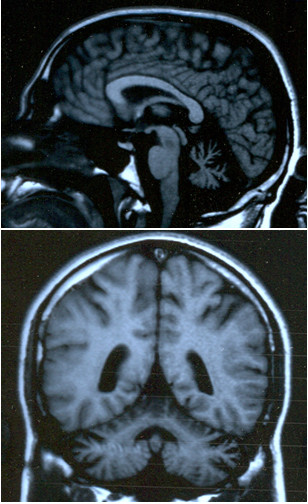In my practice I have found that patients who know and follow their basic ABO blood type diet as described in Eat Right 4 Your Type works very well. However, some individuals may not derive maximum benefit from the Blood Type Diet until they first determine their Secretor Status. Knowing this information then allows for the use of the more specific diet lists included in the book Live Right 4 Your Type. Both books were written by Peter J. D'Adamo.
From the Desk of Dr. Karl R.O.S. Johnson, DC.....
Blood Type and Autoimmune and Other Disease Susceptiblity
Posted by Dr. Karl R.O.S. Johnson, DC on Thu, Jan 05, 2012
Topics: autoimmune, fibromyalgia, D'Adamo, Blood Type, Diabetes, Secretor Status
Are Nutritional Supplements as Harmful as Media Portrays Them
Posted by Dr. Karl R.O.S. Johnson, DC on Fri, Dec 23, 2011
Headlines on the possible risks of vitamin and mineral supplements have bombarded mainstream media recently, and sparked controversy over whether doctors should recommend supplements to their patients.
Topics: autoimmune, SpectraCell, micronutrient, supplement, nutritional
Study Finds Elderly Double Death Risk with Low Cholesterol Levels
Posted by Dr. Karl R.O.S. Johnson, DC on Wed, Dec 21, 2011
Topics: autoimmune, low cholesterol, double risk of death
Scrumptious Holiday Recipes Without Gluten, Casein or Soy
Posted by Dr. Karl R.O.S. Johnson, DC on Sun, Dec 18, 2011
Christmas and the other winter holidays are just about here. My family and many others are following a health restoring diet due to autoimmune issues or other health challenges.
Topics: autoimmune, gluten free, recipes, chia, casein-free, soy-free
Gluten Free, Casein Free, Soy Free Recipes Help with Autoimmune Illness
Posted by Dr. Karl R.O.S. Johnson, DC on Sun, Dec 04, 2011
Want to lose weight, become healthier and mitigate or prevent autoimmune processes in your body? These goals are foremost in my mind and I know they are for those who seek care at my office. For the last several years - ALL the patients who have found their way to my office have an autoimmune disorder - and ALL have either a gluten intolerance gene or two, a celiac gene, or both.
Topics: autoimmune, gluten free, recipes, gluten intolerance, Hashimoto's diease
Key Factor in Developing Other Autoimmune Diseases - Duration of Gluten Exposure
Posted by Dr. Karl R.O.S. Johnson, DC on Sun, Oct 23, 2011
The longer sensitive individuals eat gluten, the more likely they are to develop other autoimmune diseases
A 1999 landmark study published in Gastroenterology found that the duration of exposure to gluten in celiac disease patients affects the risk of developing other autoimmune diseases. The finding made age at diagnosis an important factor in the overall health of patients with celiac disease.
For the study, an Italian research team screened 909 patients with celiac disease for other autoimmune diseases, including IDDM (Insulin-Dependent Diabetes Mellitus), DH (Dermatitis herpetiformis), Hashimoto’s thyroiditis or Graves’ disease, autoimmune hepatitis, alopecia, atrophic autoimmune gastritis, connective tissue disease (rheumatoid arthritis, systemic lupus erythematosus, dermatomyositis, scleroderma, or Sjogren’s disease), psoriasis, Addison’s disease, unexplained cerebellar ataxia, epilepsy with cerebral calcification, or immune anemia, neutropenia, or thrombocytopenia. They then compared the prevalence of these conditions in three different subgroups, which were separated based on when the patient was diagnosed with celiac disease (before age 2, between ages 2 and 10, and after age 10).
The team found that the prevalence of the other conditions was highest in the subgroup of patients diagnosed after age 10. Similarly, patients diagnosed between ages 2 and 10 had a higher rate of other conditions than those diagnosed before age 2. This suggests that the prevalence of autoimmune conditions increases with increasing age at diagnosis of celiac disease (ie, increasing duration of exposure to gluten).
The researchers’ chart below demonstrates the frequency of developing other autoimmune diseases.
Topics: autoimmune, Dr. Aristo Vojdani, gluten, celiac disease, Dr. Karl R.O.S. Johnson
How Gluten Intolerance Can Cause Unstable Gait
Posted by Dr. Karl R.O.S. Johnson, DC on Tue, Oct 18, 2011
The body of research surrounding gluten sensitivity grows every year alerting the medical community and people suffering from a wide range of symptoms to possible connections between seemingly untreatable medical conditions and gluten intolerance. Of note recently is the growing recognition of gluten sensitivity and gluten ataxia, a neurological condition affecting balance and coordination.
Beyond Indigestion
For decades, the medical profession has limited diagnosis of gluten intolerance to those patients who tested positive for celiac disease via an antigliadin antibodies test or endoscopy. Those patients who tested negative on these tests were told they didn't have celiac disease (CD) and that gluten was not their problem. The traditional medical mindset is celiac disease manifests primarily in gastrointestinal distress. Modern research shows that for every symptomatic patient with CD there are eight patients with CD with no GI symptom
Now we know, however, that gluten intolerance covers an entire range of symptoms including celiac disease, dermatitis herpetiformis (skin conditions associated with gluten sensitivity such as psoriasis or eczema), thyroid irregularities and other inflammatory and neurological conditions. In fact, a good number of people with gluten sensitivities don't have any gastrointestinal symptoms at all leading some doctors to disregard gluten as a root cause of symptoms.
In all cases, however, the body attacks gluten and resulting in a wide range of symptoms. Gluten ataxia is one of those symptoms caused by gluten sensitivity that may or may not be seen in conjunction with gastrointestinal distress.
Diagnosing Ataxia
By definition, ataxia is a condition affecting your muscle coordination during voluntary movements like walking or using your hands. Ataxia can also affect speech, your eyes and your swallowing reflex. Those who suffer from ataxia may find it difficult to grasp objects, walk up and down stairs, balance or successfully navigate doorways without running into them. On the extreme end, ataxia can drive patients to wheelchairs, prevent people from working or even interfere with the body's swallowing reflex.
Diagnosing gluten ataxia has been slow. Most often, doctors look for other underlying symptoms of ataxia including head trauma, stroke or multiple sclerosis. Additionally, few in the medical community have embraced the notion that a person without gastrointestinal symptoms could have a gluten sensitivity manifesting in other ways.
The work of Dr. Marios Hadjivassiliou in researching gluten ataxia has played a key role in encouraging patients to ask their doctors about this manifestation of gluten intolerance. Dr. Hadjivassiliou has documented correlations between ataxia and a heightened immune response to gluten. His work also pushes doctors to look beyond the gut when diagnosing gluten sensitivities.
Patients with unexplained coordination and balance problems should ask their doctor about the possibility of gluten ataxia whether they suffer from other known manifestations of gluten sensitivity or not.
Seeking a Cure
Eating a strict gluten free lifestyle can alleviate many of the symptoms of ataxia, just as the lifestyle can help those who suffer from celiac disease and skin conditions caused by gluten. It is also important for those who suffer from gluten ataxia to work with someone in the medical field who understands their diagnosis and will work with them on the root cause of the ataxia. The brain heals much more slowly than the intestinal tract and those with ataxia may take longer to heal and see a true remission of symptoms than those with primarily skin or bowel symptoms. A doctor specializing in gluten sensitivities and who takes a holistic approach to medicine is best suited to working with sufferers of ataxia.
Hope and help is out there for the growing number of people discovering the extent of gluten sensitivity including balance and coordination challenges stemming from gluten ataxia. The key is going to a doctor who knows how to properly test you so the root cause of your health challenge can be found.
Topics: autoimmune, Cyrex Labs, gluten sensitivity, Dr. Karl R.O.S. Johnson DC, Ataxia, Dr. Aristo Vojdani










